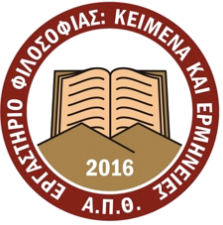What should be the focal points for philosophical theorizing? A test case from early Chinese thought
Hagop Sarkissian (City University of New York)
Abstract
Philosophers interested in ethics often choose a focal point for theorizing—the object they wish to evaluate from an ethical point of view. For example, philosophers can focus on the status of actions or rules or virtues. Oftentimes, the choice of focal point is informed by background assumptions about what matters—for example, that we experience pain, or that we have rights, or that our actions issue forth from character. A distinctive feature of several classical Confucian texts is that they take ritual (whether familial, social, or ceremonial) as an important focal point for theorizing. In this talk, I highlight this dimension of Confucian ethical thinking, and argue that it helps guide us to what they think is of normative significance.
Hagop Sarkissian is Professor and Chair of Philosophy at the City University of New York, Baruch College, and Professor of Philosophy at CUNY Graduate Center. His research is located at the intersection of moral psychology, metaethics, and classical Chinese philosophy— especially Confucianism. He has authored or co-authored papers in these areas for several journals, including Philosophical Studies, Philosophers’ Imprint, Philosophy East & West, Dao, Annual Review of Psychology, Mind & Language, British Journal for the History of Philosophy, and History of Philosophy Quarterly, as well as numerous anthologies. He is co-editor, with Jennifer Cole Wright, of Advances in Experimental Moral Psychology (Bloomsbury, 2014) and, with Philip J. Ivanhoe, Owen J. Flanagan, Victoria S. Harrison, and Eric Schwitzgebel, of The Oneness Hypothesis (Columbia, 2018). His work has been translated into Chinese and Korean.

